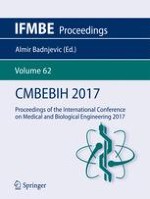2017 | OriginalPaper | Buchkapitel
The role of population pharmacokinetic analysis in rational antibiotic therapy in neonates
verfasst von : Duspara Kristina, Smits Anne, Allegaert Karel, Heljic Suada, Turcic Petra, Rakovac Tupkovic Lejla, Kusturica Jasna, Rakanovic-Todic Maida, Burnazovic-Ristic Lejla, Maleskic Sanita, Kulo Aida
Erschienen in: CMBEBIH 2017
Verlag: Springer Singapore
Aktivieren Sie unsere intelligente Suche, um passende Fachinhalte oder Patente zu finden.
Wählen Sie Textabschnitte aus um mit Künstlicher Intelligenz passenden Patente zu finden. powered by
Markieren Sie Textabschnitte, um KI-gestützt weitere passende Inhalte zu finden. powered by
Due to dynamic maturational changes in neonatal life, changes in pharmacokinetic (PK) and pharmacodynamic (PD) processes of drugs administered to neonates are expected. However, children are mostly treated off-label, i.e. without testing the drug in children but based on the extrapolation of data from adults. For the optimisation of dosage regimens in neonates, besides Therapeutic drug monitoring (TDM) and a Bayesian feedback algorithm, population PK approach became relevant. Population PK modeling is a stepwise approach with building of structural and covariate models, model evaluation and simulations resulting in estimation of the population mean values of PK parameters such as clearance and volume of distribution, their inter- and intra-individual variabilities, covariates as well as on simulation-based optimised dosing proposals. The relevance of those approaches in overcoming gaps between realistic and feasible in-practice situations while performing PK studies in children, and taking into account ethical requests to minimise the number of studies in children and to minimise the number of children recruited to studies is also recognised by the authorities. In this article, we aimed to emphasise the importance of the research and of the population PK approach in the improvement of rational antibiotic therapy in neonates and to illustrate this with some specific compounds. For this reason, we gave a short overview of the population PK studies of the most frequently used antibiotics in European neonatal intensive care units. As final results of performed population PK analyses, optimised dosing regimens were proposed for rational antibiotic treatment and prophylaxis of neonates.
